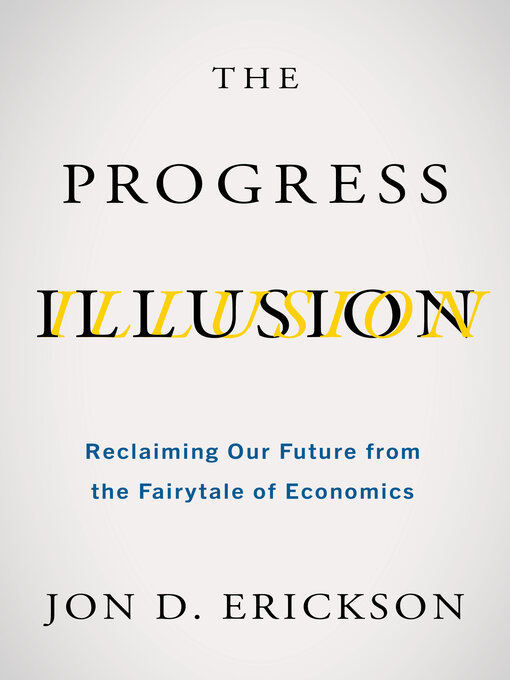
## Metadata
- Author: [[Jon D. Erickson]]
- Full Title: The Progress Illusion
- Category: #books
## Highlights
- Ecological economics was intended to embed the human system within the ecosystem, blurring the lines between the natural and social sciences. The formalization of this transdiscipline in the late 1980s challenged a growing economic imperialism that defined humans as consumers, society’s purpose as growth, and our relationship with the Earth as overlord.
- Business programs and degrees exploded in the ’80s, with freshman economics at the base of the boom. Nearly 60 percent of the high school class of 1982 who went on to college registered for principles of micro and macroeconomics, surpassed only by enrollment in freshman composition and general psychology, the only courses over the 50 percent mark.
- Economics also fit an American patriotism under which we were raised: our pledge of allegiance to free markets to win the Cold War. Throughout our childhood, we imagined long bread lines behind a mysterious Berlin Wall. Doctors and janitors working for the same menial wages. A Soviet Union draped in gray and black. In America, you could buy anything, anywhere, at any time. Our duty to country was to be good consumers. Gone were motivations beyond the self. Community was a marketplace, and votes were in dollars.
- Principles of economics were seen as foundational to ordered, logical, rational thinking. For the business student, micro and macro was the prerequisite to marketing, accounting, and finance. How do we get more people to consume? Marketing. How do we tally our efforts? Accounting. How do we pay for it all? Finance. And for the English or biology or political science or any other liberal arts and science major, economics became the social science elective to make sense of our side in the Cold War.
- Econ 101 presented a world order with a singular objective: Consume. The individual was king, and money was the object of our desire. The rules were laid out in straightforward equations. At the intersection of the “laws” of supply and demand, X always marked the spot.
- The education of the economist is a journey into the depths of abstraction. It starts in such innocence, with linear graphs of demand and supply curves settling into predictable market equilibrium. After Econ 101, add a little calculus to get your smart on. Same story, but now we can solve for X in what seems more and more like hard science.
- As a dominant social science tightly controlled by a small group of predominantly White men from a small club of elite institutions, the mainstream of economics has been slow to change. In much of recent history, an economist’s identity flowed from the high priest they followed or school they studied. Did you pay homage to Keynes or Hayek? To Samuelson or Friedman? Where did you study, what textbook did you teach, and in which journal did you publish? Economics started as a moral philosophy and portended to be a social science, but today it seems more like a series of cults, albeit with highly influential memberships.